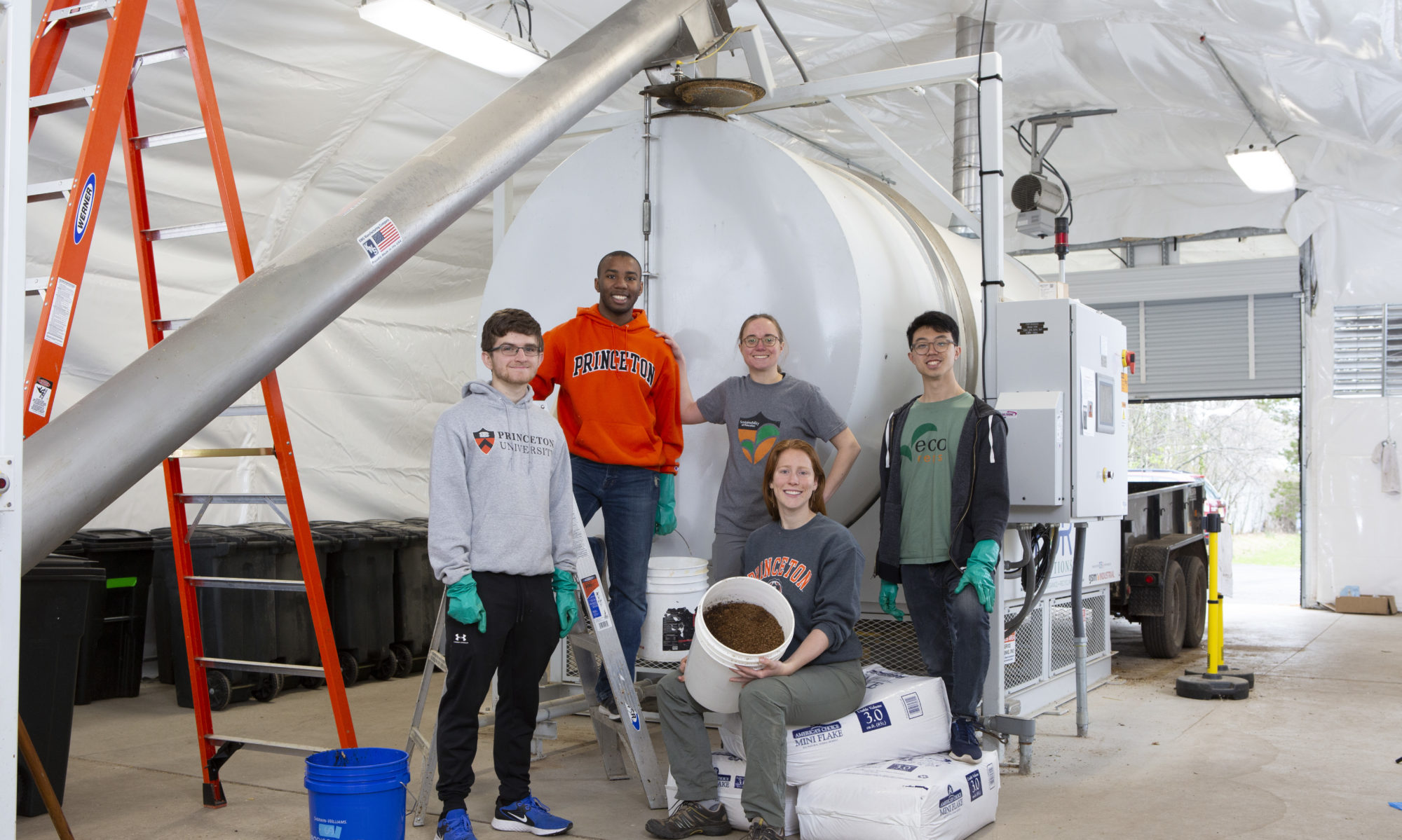Continuing our review of Campus as Lab efforts, this post will provide an update on a project examining the environmental and economic implications of transitioning campus agricultural land from conventional to sustainable farming practices.
The project, led by Professor Daniel Rubenstein and assisted by me, involves engaging undergraduate students in measuring the relative importance of different soil amendments (including S.C.R.A.P Lab compost!) and weed control methods on crop productivity, soil health, and profit. Additionally, our team is analyzing the impact of low-cost fencing in reducing crop damage from deer overgrazing.
The ultimate goal of the project will be to develop a set of recommendations on how the University can farm in a more environmentally responsible and cost-effective way as the current industrial model of growing a rotation of corn and soybeans using fossil-fuel based inputs is carbon intensive, degrades soils, and pollutes waterways. Alternative and more sustainable practices that we are testing include diversifying the crop rotation, using natural soil amendments like compost, and ensuring ground cover over the winter with a cover crop in order to increase the soil’s ability to supply nutrients to crops without relying on excess use of chemical inputs.
Below is a photo essay describing the project and progress to-date:





After planting, a sloping electric fence system with a taller inner fence and shorter outer fence, was constructed in an attempt to keep deer out (deer can jump pretty high, but rather not scale two obstacles at once). Reflective tap was also added as a scare mechanism for both deer and geese.


Next Steps:
In a few weeks, the soybeans will be harvested using a yield counter to obtain accurate data on the productivity of each plot. We will conduct statistical analyses to determine the relative effectiveness of fencing, soil amendment, and weed control method on yield. In the spring, we will take soil samples and run the same analyses for initial impacts on soil fertility compared to baseline levels collected earlier this year. We hypothesize that the sections receiving compost and planted with winter rye will have a more favorable soil pH, a higher percentage of organic matter, and optimum levels of nutrients versus the sections that did not receive the compost or rye treatments.
In Other News
Today, September 29th, the United Nations celebrated the first ever observance of the International Day of Awareness of Food Loss and Waste
